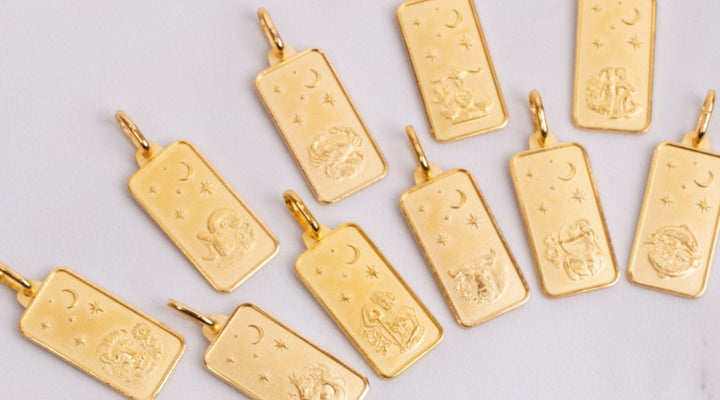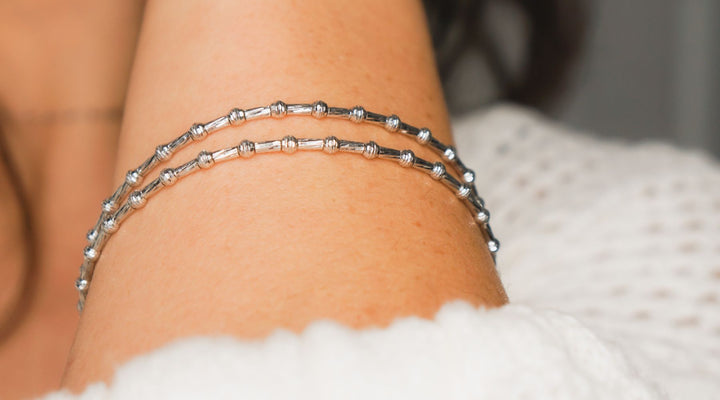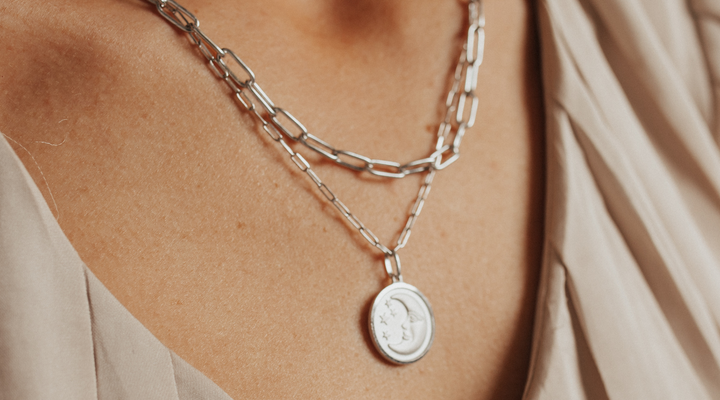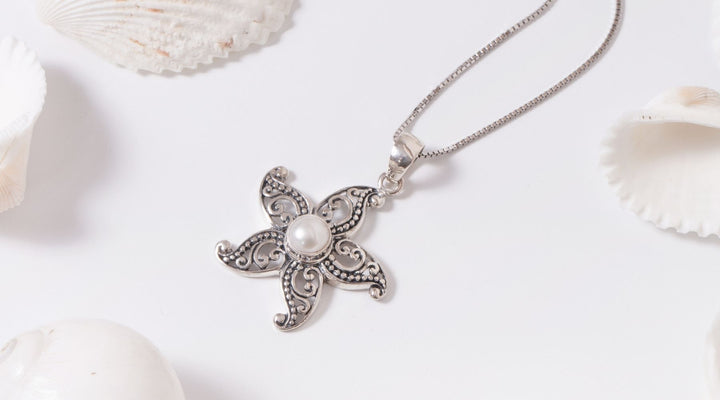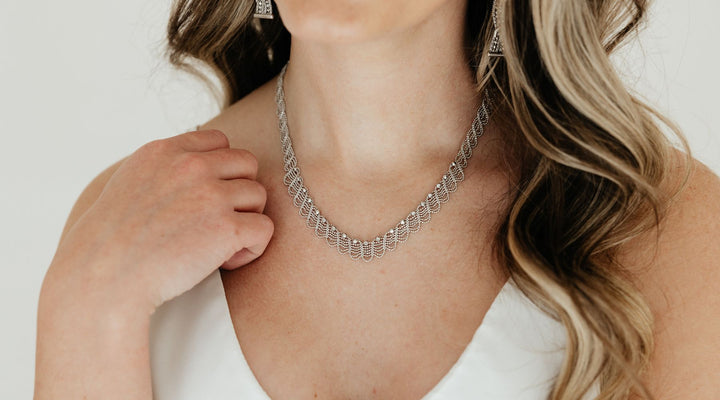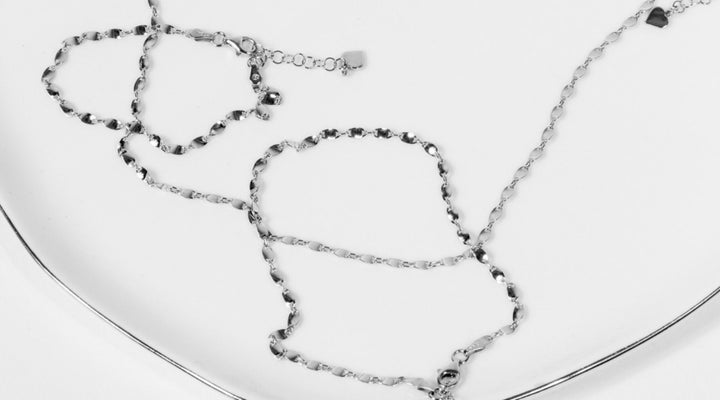Put On Your Detective Hat: How to Spot Real Amber From Fake
Posted by Deven Davis on
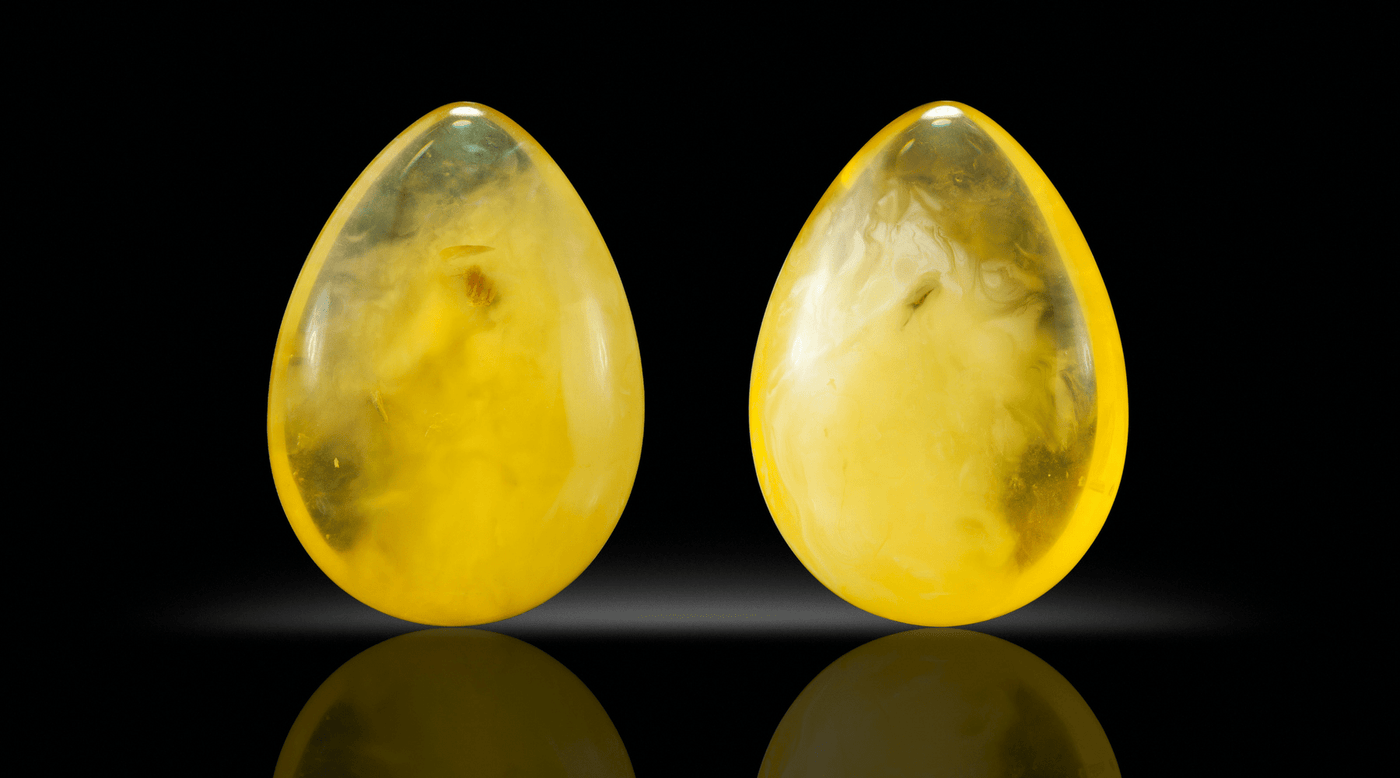
How to Spot Real Amber From Fake
Amber is growing in popularity, so of course, there are people trying to sell fake jewelry pieces. Don't be fooled! Read here to learn how to spot real amber.
Keyword(s): real amber
When buying real amber, you want to make sure you are not looking at a fake replica. Amber has succinic acid which is known to allow the body to heal itself.
Real jewelry has other unique properties that set it apart from the cheaper ones. The rise in popularity for amber is associated with its healing powers and ancient history.
Not sure how to determine if the amber you wish to buy is real amber or fake?
Keep reading to learn more about spotting real amber.
1. Take a Good Look
One of the first steps in determining if the amber you are about to buy is real or fake is after doing a simple visual test.
Check the amber for slight imperfections. All of the beads should be different from one another and vary in size. No stone is going to be perfectly round.
Another real amber indicator is how it feels in your hands. If the stone feels warm, then you have a piece of real amber.
2. Salt Water Test
One of the most popular ways to determine if you have real amber is by performing a saltwater test. In seawater, amber is the type of stone to float.
This is how to perform the saltwater test:
- Gather 5-7 teaspoons of salt
- Gather a large cup of water
- Mix the salt into the cup of water
- Place the amber stone in the saltwater mixture
- See if the stone floats or sinks
If the amber stone floats, then you know it is real. If it sinks, then you know you have a replica. Real amber stones can be found floating and washing ashore the Baltic Sea.
3. Buy from a Reliable Source
Another helpful tip we suggest is to buy the amber stones from a trustworthy source. At Roma Designer Jewelry, we specialize in selling high-quality jewelry pieces with authentic stones. Real amber is soft and can splinter.
Some places are likely going to over-charge you for amber. Make sure you use this guide in order to spot the real or fake amber pieces anywhere you go.
4. A Real Amber Rubbing Test
Performing a simple rubbing test is another way to easily spot imitation amber from the real thing. You take a piece of the amber stone and rub it onto the palm of your hand.
Once you start rubbing, take note of any smell you start to breathe in.
Do you smell something similar to a pine tree scent? Amber stone is known for giving off a distinct smell.
When you rub the stone against your palm, the heat creates a unique smell that proves its authenticity. No smell, no real amber.
If you decide not to rub the amber against your palm to smell it, there is another trick you can do. Take the amber stone and place it in a cloth. Rub the stone in the cloth for up to 20 seconds.
Once the stone is charged up, place it close to strands of your hair. Is the amber gemstone you have attracted to the hair? Amber is electrostatic in nature, so if the stone you have is real then your hair will be pulled toward the stone.
If your stone fails this test, then the stone is most likely created from copal, which is just a resin coating that can be found on imitation pieces. The copal will also start to feel sticky after you rub it for some time. The copal also releases a sweeter smell than real amber.
5. Scratch It
Scratching your piece of amber stone can be effective to see if it is truly authentic.
On the Mohs scale, which is a scale used to test for mineral hardness, amber is at a 2.5. Hardness is a property to test for because it helps you compare hardness between two unknown specimens.
Perform a scratch test by using your fingernail to gently scratch at the stone. Real amber will not budge and leave any scratch marks on the surface of the stone.
However, imitation amber in the form of manmade copal is going to show damage from a fingernail scratch. It has a hardness level of 1.5 on the Mohs scale.
6. Hot Needle Test
A more in-depth approach to discovering if your amber stone is real can be done using a hot needle.
This treatment is often regarded as the most effective option to try out. Simply take a hot needle and press it gently against the amber stone.
Baltic amber is usually quite fragile. If you were to insert the needle into a plastic stone, then melting would occur. If you have a real amber stone in your presence, then the needle will show signs of cracking the object.
When performing a hot needle test, you should be aware of what size of stone you choose for testing purposes. If you go with a small amber bead, then the stone will not hold up to the test and can be destroyed. Find a larger amber piece to get significant results.
The fake pieces made out of plastic will also leave a mark behind in the place where the needle went in. This is yet another indication that your stone is not authentic and was manmade.
Learn More About Our Jewelry Collections
To wrap up, we hope this article provides you with more knowledge about spotting a real or fake amber. Manmade amber continues to enter the market because it can be easy to create out of copal material.
You need to understand what properties to look for when purchasing expensive jewelry. Amber is a natural healing stone, so you want to make sure you purchase authentic amber for its spiritual properties.
Performing a saltwater test is an effective way to determine if your amber is real. Another tip is to buy from a reliable source, such as our collection of amber pieces at Roma Designer Jewelry.
Upgrade your current jewelry collection to feature some of our genuine amber stones set in sterling silver. Our stones are sourced from around the world. Every single item is produced with pristine craftsmanship and is equipped with a lifetime satisfaction warranty.







